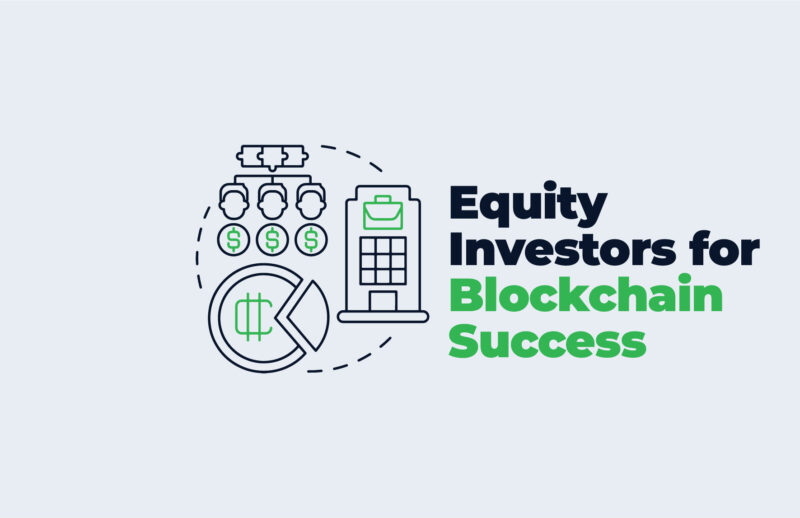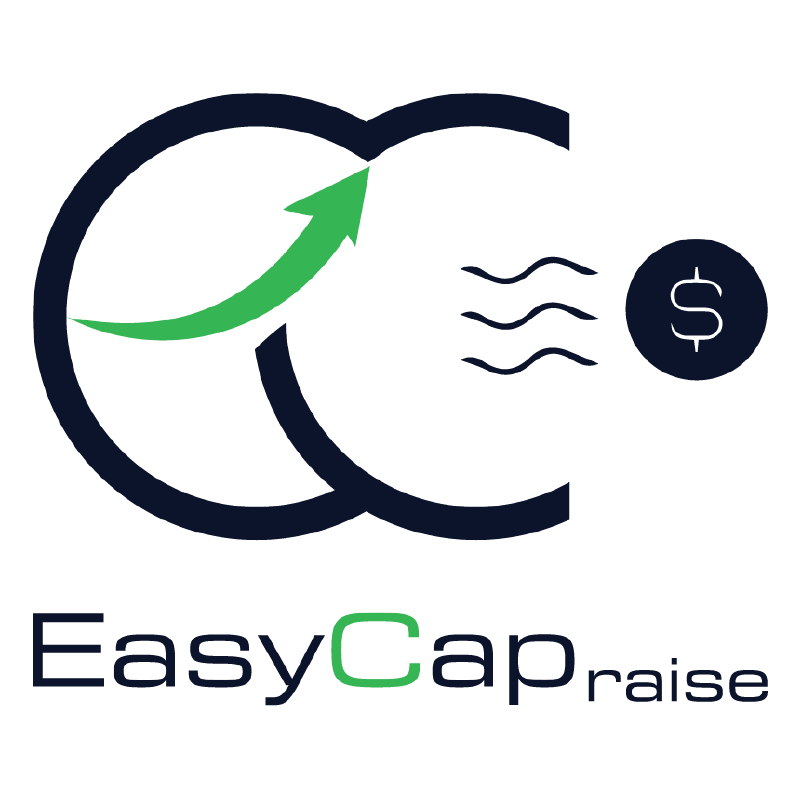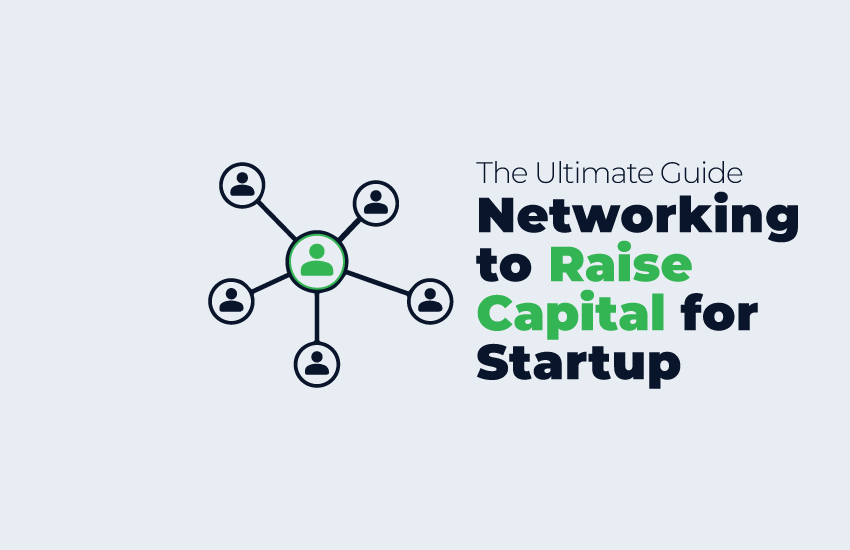Blockchain startups realize tokens’ limits; equity investors offer capital, guidance, networks, and long-term growth. Equity + token warrants attract more investors.
Why do You Need Equity Investors for Your Blockchain Startup?

Beyond ICOs: The Importance of Equity Investment for Blockchain Startups
Blockchain technology is rapidly gaining traction in the startup world, with many entrepreneurs turning to the technology to create decentralized applications and platforms that have the potential to disrupt traditional business models. One of the most popular fundraising strategies for blockchain startups is the initial coin offering (ICO), which allows companies to raise funds by issuing tokens to investors. However, as the regulatory landscape for token sales becomes increasingly uncertain and market conditions become more volatile, blockchain startups are beginning to realize that there may be better approaches than relying solely on tokens. Equity investors are crucial for blockchain startups, particularly in the pre-seed and seed stages. They provide capital, mentorship, guidance, and access to industry networks, which are essential for the long-term growth and success of the startup. It’s important to note that ICO is a common method, but to unlock the whole potential of blockchain startups, they need equity too. It’s a way for startups to secure not just funding but also the support of experienced investors who will help them navigate the challenges of growing a business and bring it to the next level.
Key takeaway:
- Startups in the blockchain industry are now raising funds through a combination of equity and token warrants instead of just equity or tokens. This approach provides benefits to both startups and investors by allowing them to raise funds from a wider pool of investors and align their interests while offering investors the opportunity to participate in the potential upside of tokens and the stability of an equity investment.
- Blockchain startups are realizing the importance of equity investment in addition to initial coin offerings (ICOs) as a fundraising strategy as the regulatory landscape for token sales becomes uncertain and market conditions become more volatile. Equity investors provide not only funding, but also mentorship, guidance, and access to industry networks, which are essential for the long-term growth and success of the startup.
- Tokens are an important tool for blockchain startups to raise capital and incentivize network participants, but relying solely on them can have limitations such as high volatility, uncertain regulation, and difficulty in liquidation, making it important to consider other funding methods.
- Equity investors provide more than just capital for blockchain startups, offering a long-term perspective, valuable networks and relationships, expert guidance, and support in navigating the complex regulatory environment.
The Role of Tokens
Tokens play a crucial role in many blockchain startups, as they provide a way to incentivize and reward network participants. Tokens are often designed to be used as a means of exchange for goods or services within the platform, helping to create a self-sustaining ecosystem. One of the most significant benefits of tokens is that they provide a way for startups to raise capital through initial coin offerings (ICOs) or security token offerings (STOs). This allows startups to bypass traditional fundraising methods and connect directly with investors.
However, relying solely on tokens for funding can have its limitations. Tokens can be subject to high volatility, making it challenging to attract long-term investors. Additionally, the regulatory environment for tokens is still uncertain, which can make it difficult for startups to scale their operations. Tokens can also be challenging to liquidate, which can limit the ability of investors to exit their positions.
Beyond Money: The Value of Equity Investors for Blockchain Startups
Equity investors bring more to the table than just capital for blockchain startups. They bring their expertise, networks, and relationships that can help startups grow and succeed.
One of the most significant advantages of equity investors is that they provide a long-term perspective. Equity investors are typically interested in the long-term growth and success of the startup, and they are committed to supporting the company through its ups and downs. This long-term perspective helps startups focus on their mission and pursue their goals, even when faced with short-term challenges.
Equity investors also bring their networks and relationships to the table. They can help startups connect with strategic partners, customers, and other key stakeholders that can help drive growth. Additionally, equity investors can provide valuable insight and guidance on important business decisions, such as hiring, marketing, and product development.
Another advantage of equity investors is that they can help startups navigate the complex regulatory environment. Blockchain startups face unique challenges when it comes to regulation, and equity investors can provide support in developing strong corporate governance practices that ensure compliance with relevant laws and regulations.
Equity Plus Token Warrants: A Winning Strategy for Blockchain Startups
In recent years, a new trend has emerged in the fundraising landscape for blockchain startups. Instead of raising funds solely through equity or tokens, many startups are now choosing to raise funds through a combination of equity and token warrants.
A token warrant is a type of option that gives the holder the right to purchase tokens at a future date at a fixed price. By issuing token warrants along with equity, startups are able to provide their investors with the potential upside of tokens while still having the stability and long-term support of equity investors.
This approach has several benefits. For startups, it allows them to raise funds from a wider pool of investors, including both traditional equity investors and crypto investors. It also provides a way to align the interests of both types of investors by giving them a stake in the success of the startup. For investors, it offers the opportunity to participate in the potential upside of the tokens while still having the stability of an equity investment.
According to Jon Russell, a partner at the venture arm of Crypto.com, many web3 startups seeking capital are choosing the equity plus token approach. The $300 million fundraising by Mysten Labs, the creator of the yet-to-be-launched Sui blockchain, showcases the trend. Led by FTX Ventures, headed by Sam Bankman-Fried, investors in the round were given equity in the San Francisco-based company and token warrants, allowing them to claim a portion of Sui’s native tokens once the blockchain goes public and starts trading. In June 2021, dYdX, a derivatives exchange, used a comparable approach during its $65 million fundraising.
As we have discussed, equity investors can bring a lot of value to blockchain startups, and the trend of raising funds through equity plus token warrants is becoming increasingly popular. If you’re a founder of a blockchain startup looking to raise funds, it’s important to consider all of your options, including equity and token warrants.
Deciding to raise funds through an ICO or equity needs a lot of considerations based on multiple factors like the regulatory environment, the stage of funding, the industry, and so on, which all require professional consulting. In addition, no matter which method of fundraising you use, a crypto project needs a standalone white paper. Here you can find everything you need to prepare a professional white paper. At Easy Capraise, we assist startups across industries in successful fundraising. We offer support with necessary resources such as pitch decks and financial models and help connect startups with top investors who have extensive networks across industries and countries. Check out our portfolio for more information.
FAQs About Blockchain Startup
Is it better to raise funds through equity investments or token offerings for blockchain startups?
Both equity investments and token offerings have their own advantages and disadvantages. Equity investors bring long-term support, alignment of interests, and the ability to help startups navigate regulatory challenges, while token offerings can provide a quicker and more accessible way to raise funds. However, it’s important to consider all of your options and choose the one that best aligns with your goals and needs.
Can you explain more about the trend of raising funds through equity plus token warrants?
The trend of raising funds through equity plus token warrants is becoming increasingly popular among blockchain startups. It allows startups to raise funds through both equity investments and token offerings, providing the benefits of both options. The equity investors get a share of the company, and the token holders are able to participate in the potential success of the company by holding the token warrants.
Why are startups combining equity and token warrants in fundraising?
By combining equity and token warrants, startups can raise funds from a wider pool of investors, align the interests of both traditional equity investors and crypto investors, and offer investors the potential upside of tokens while still having the stability of an equity investment.
What is a token warrant?
A token warrant is a type of option that gives the holder the right to purchase tokens at a fixed price at a future date.
Why is relying solely on tokens for funding challenging?
Relying solely on tokens for funding can be subject to high volatility, making it challenging to attract long-term investors. Additionally, the regulatory environment for tokens is still uncertain, which can make it difficult for startups to scale their operations. Tokens can also be challenging to liquidate, which can limit the ability of investors to exit their positions.
Contact us
Good to have you here! If you have any queries, please leave your message. Our team will reach out soon:)
.




